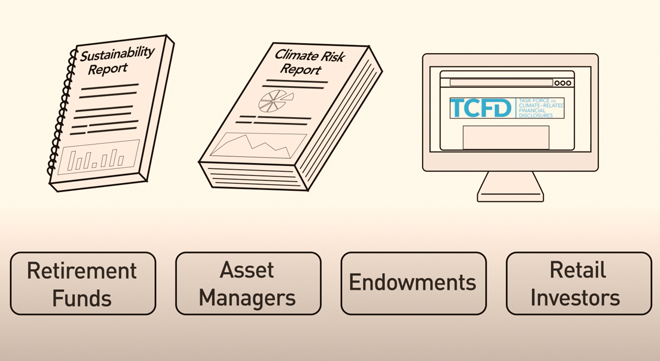Investors are increasingly demanding more information so that they can assess the impact of climate-related risks on their investments. Shareholders are asking South African banks to publish policies outlining their climate strategy and exposure to fossil-fuel assets. This fifth video (3:43) in a series on the impact of climate change on investments discusses climate-related financial disclosure in South Africa.
Part one (3:24) of the series explained the two main types of risk presented by climate change: physical risk and transition risk.
Part two (2:27) looked at three risks to the sustainability of companies: policy risk, liability risk, and reputational risk.
Part three (3:03) discussed climate-related financial disclosures.
Part four (3:32) looked at the Task Force on Climate-related Financial Disclosures’ recommendations for how companies should disclose consistent and meaningful climate-related information to lenders, insurers, investors and other stakeholders.
The Financial Stability Board (FSB) created the Task Force on Climate-related Financial Disclosures (TCFD) to develop recommendations on the types of information that companies should disclose to support investors, lenders, and insurance underwriters in appropriately assessing and pricing risks related to climate change.
The FSB is an international body that monitors and makes recommendations about the global financial system. The TFFD consists of 31 members from across the G20, representing preparers and users of financial disclosures.
This series was developed for the South Africa-UK PACT project, which has been partnering with South Africa since June 2020 to support the acceleration of the just transition and a low-carbon economic recovery after the Covid-19 pandemic. UK PACT (Partnering for Accelerated Climate Transitions) is a flagship programme under the UK’s International Climate Finance portfolio.



